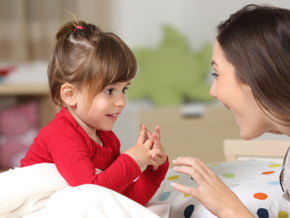
Understanding Positive Parenting: Strategies and Benefits
Positive parenting is a philosophy centred on nurturing and guiding children with love, respect, and empathy.
Positive parenting aims to cultivate a healthy parent-child relationship and teach essential life skills, in order to nurture your child's self-esteem and emotional well-being. By embracing positive parenting, you create a gentle parenting environment where your child can thrive. Positive parenting benefits are numerous, including improved communication, reduced behavioural issues, and enhanced overall development.
What is Positive Parenting?
Positive parenting is an approach that focuses on nurturing and developing a strong parent-child bond while promoting your child's emotional and social well-being.
At its heart, positive parenting emphasises empathy, respect, and understanding. It encourages parents to connect with their children emotionally, valuing their feelings and perspectives. This gentle parenting approach recognises that children have their own thoughts, emotions, and desires, fostering a healthy, open, and supportive relationship between parents and children.
Unlike other parenting styles, positive parenting focuses on positive discipline and setting realistic boundaries, rather than harsh punishments, or rewards. Instead, positive parenting strategies promote natural and logical consequences, allowing children to learn from their actions and make responsible choices. By using positive reinforcement, parents can strengthen desired behaviours and provide constructive feedback to help children learn and grow.
There are common misconceptions about positive parenting. Some may think it means permissive parenting or soft parenting with no rules or boundaries. However, positive parenting involves setting clear expectations and limits while being supportive and nurturing. It also doesn’t mean avoiding conflict or challenging situations. It’s about approaching these situations with empathy, understanding, and finding constructive solutions.
Positive parenting benefits
Positive parenting aims to nurture and support children, promoting their emotional well-being and building strong parent-child relationships. By adopting positive parenting techniques, you can provide numerous benefits to your child's development and overall happiness.
- Emotional benefits are key advantages of positive parenting. When children are raised in a positive and supportive environment, they can develop a strong sense of self-worth and confidence. They feel loved, understood, and valued, contributing to their emotional stability and resilience.
- Positive parenting also strengthens the parent-child relationship. By using positive discipline strategies such as praise, encouragement, and active listening, parents can create a secure attachment with their children. Trust, open communication, and mutual respect can lay the foundation for a lifelong connection.
- Furthermore, positive parenting techniques form long-term positive outcomes in children's behaviour. When parents focus on teaching and modelling positive behaviours rather than using penalising tactics, children can learn to regulate their emotions, solve problems, and make responsible choices. You can support them to develop empathy, self-control, and effective communication skills, crucial for their future success and well-being.
Positive parenting strategies
By focusing on gentle parenting that nurtures and guides your little one in a supportive and respectful manner, you can create a positive and harmonious environment for your child to thrive. Here are some effective positive parenting techniques:
- Effective communication: Communication is key to building a strong parent-child bond. Active listening, open-ended questions, and validating feelings can help children feel heard and understood. Avoiding criticism and using positive language can also encourage healthy communication.
- Setting realistic and consistent boundaries: Boundaries provide children with a sense of security and structure. It is important to establish clear expectations and consequences that are age-appropriate. Consistency in enforcing these boundaries will help your little one understand what is expected of them and promote self-discipline.
- Encouraging problem-solving and independence: Allowing your child to solve problems on their own builds confidence and critical thinking skills. Encourage them to find solutions, provide guidance when needed, and praise their efforts. Promoting independence helps children develop a sense of autonomy and self-reliance.
Positive parenting resources
Being a parent is a wonderful journey filled with love, joy, and challenges. For additional support, you can find other valuable resources to help you navigate the exciting world of parenting:
Books and articles for further reading: Whether you prefer to curl up with a book or browse online, you'll find a wealth of information to help you along the way. Check out your local library or search online for books and articles available that provide valuable insights and guidance on positive parenting solutions.
Online courses and workshops: If you prefer a more interactive learning experience, online courses and workshops can be a great option. These platforms offer convenient and flexible ways to enhance your parenting skills. Look for courses that cover topics like positive parenting solutions, positive discipline, effective communication, and building strong parent-child relationships.
Support networks and communities for parents: Never underestimate the value of connecting with other parents who share similar experiences. Joining support networks and communities allows you to share advice, seek guidance, and find comfort in knowing you're not alone. Check out local parenting groups, online forums, or even social media groups dedicated to positive parenting.
Frequently asked questions about positive parenting
What are the 4 C's of positive parenting?
The 4 C's of positive parenting often refer to Connection, Communication, Consistency, and Cooperation. Connection focuses on building a strong parent-child bond. Communication emphasizes active listening and respectful communication. Consistency involves setting clear boundaries and following through with consequences. Cooperation promotes finding mutually agreeable solutions and involving children in decision-making.
What is the Positive Parenting Program?
The Positive Parenting Program, also known as Triple P, is an evidence-based parenting program backed by the Australian Government that aims to support and empower parents. With over 35 years of research, Triple P provides practical tools and strategies to help parents raise happy, confident children, manage behaviour effectively, and establish positive and healthy family dynamics.
What is a positive parenting style?
Positive parenting is a gentle parenting approach that emphasizes nurturing, respect, and effective communication. It focuses on building a strong parent-child relationship based on trust and understanding. Positive parenting involves setting clear boundaries, using positive reinforcement, and teaching children important life skills. It promotes the child's emotional well-being, self-esteem, and positive behaviour.
What is positive parenting in a nutshell?
Positive parenting is an approach that emphasises warmth, empathy, and effective communication. It’s important not to misunderstand positive parenting as being permissive parenting or soft parenting with no rules or boundaries. Rather, it involves positive reinforcement, and setting clear and realistic boundaries that promotes a respectful parent-child relationship.
What is a positive parental role?
A positive parental role involves having a nurturing and supportive presence in a child's life. It includes providing love, guidance, and setting appropriate boundaries. A positive parent actively listens, is able to communicate effectively, and models positive behaviour. Positive parenting prioritises a child's well-being by promoting their emotional, social, and cognitive development.
Sources:
- Health Direct Website. Accessed at https://www.healthdirect.gov.au/partners/triple-p-positive-parenting-program
- Triple P Positive Parenting Program Website. Accessed at https://www.triplep-parenting.net.au/au/free-parenting-courses/triple-p-online-under-12/


